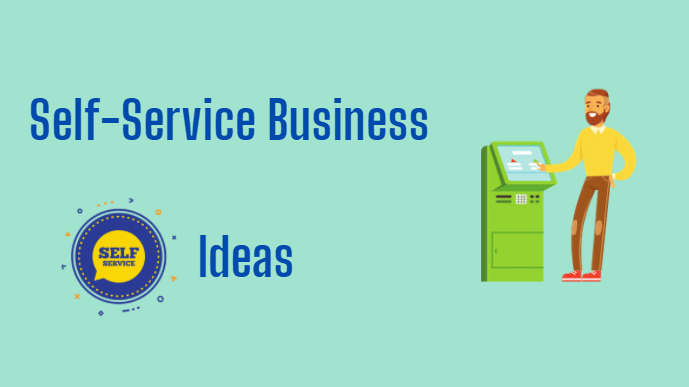Reviewed by: Jayprakash Prajapati | Last updated on December, 17, 2023
Want to jump straight to the answer? The Best Customer Data Platforms for most people is VueScan, DocScanner, or BlindScanner.
In the age of data-driven decision-making, businesses are seeking innovative ways to harness customer information for tailored experiences. Customer Data Platforms (CDPs) stand as a game-changing solution, enabling organizations to gather, unify, and analyze customer data from various sources.
The best customer data platforms empower businesses to understand their customers deeply, personalize interactions, and drive effective marketing strategies. Let’s delve into the world of customer data platforms and explore how they revolutionize customer engagement.
I want to show you the top-range Customer Data Platforms in 2024, available on the market today, reviewed in deep depth, and help you decide which is best for your business.
What Is The Best Customer Data Platforms.
Here are my picks for the Best Customer Data Platforms to use this year.
1. Netcore Cloud.
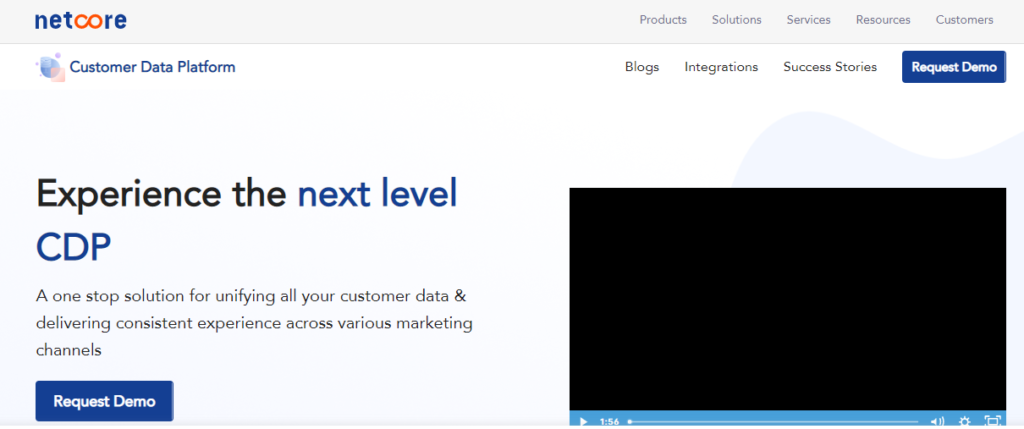
Netcore Cloud serves as a comprehensive customer data platform that empowers businesses to collect, analyze, and leverage customer data to drive personalized marketing efforts and enhance customer experiences. Through features like unified profiles, segmentation, analytics, and personalization, Netcore Cloud enables businesses to make data-driven decisions and build stronger, lasting relationships with their customers.
Netcore Cloud is a powerful customer data platform designed to help businesses collect, manage, analyze, and leverage customer data to drive personalized marketing strategies, enhance customer experiences, and achieve business growth. With its advanced features and capabilities, Netcore Cloud empowers organizations to make informed decisions based on customer insights. Here’s an overview of Netcore Cloud’s capabilities in managing customer data.
Key Features:
- Data Collection and Integration: Netcore Cloud enables businesses to collect customer data from various sources, such as websites, apps, email campaigns, and more. It supports integration with different data systems to consolidate customer information.
- Unified Customer Profiles: The platform creates unified customer profiles by aggregating data from multiple touchpoints, providing a holistic view of each customer’s behavior, preferences, interactions, and purchase history.
- Segmentation: Netcore Cloud offers powerful segmentation tools to categorize customers into distinct groups based on demographics, behavior, interests, and engagement patterns.
- Data Enrichment: The platform enhances customer profiles with additional data, such as social media activity, interests, and transaction history, enabling deeper personalization.
- Real-time Data: Netcore Cloud provides real-time access to customer data, allowing businesses to react quickly to changing customer behavior and preferences.
- Analytics and Insights: The platform offers advanced analytics and reporting capabilities, allowing businesses to derive insights from customer data and identify trends, opportunities, and challenges.
- Personalization: Netcore Cloud enables personalized marketing campaigns by utilizing customer data to deliver targeted messages, recommendations, and offers across various channels.
- Marketing Automation: The platform supports marketing automation, allowing businesses to trigger personalized messages based on customer actions and preferences.
- Cross-channel Engagement: Netcore Cloud enables businesses to engage customers across multiple channels, including email, SMS, mobile apps, social media, and more.
- Optimization: The platform helps optimize marketing efforts by analyzing the performance of campaigns and suggesting improvements based on customer data.
- Data Privacy and Compliance: Netcore Cloud prioritizes data privacy and compliance, adhering to regulations like GDPR and providing features to manage customer consent and preferences.
- Integration with Third-party Tools: The platform can integrate with other tools and systems, such as CRM platforms and marketing automation software, to create a comprehensive customer data ecosystem.
- Support and Training: Netcore Cloud typically offers customer support, training, and resources to help users effectively utilize the platform’s features.
Pricing:
You can easily get started at Netcore Cloud with a free sign-up. If you want more features besides free sign-up. So you will have to step up to the paid plan. If this plan does not match your personal reasons or business, I would recommend you to drop a mail to their customer support or you can contact them directly as per availability.
2. Oracle Marketing.
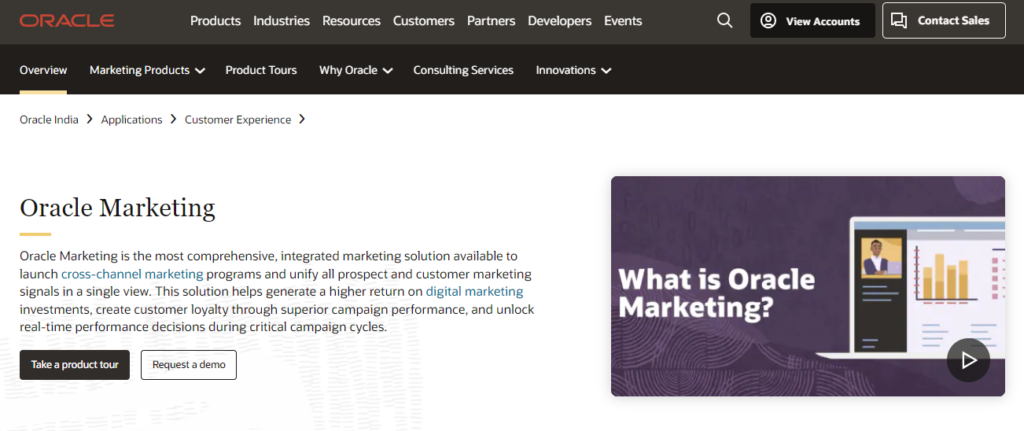
Oracle Marketing Cloud serves as a powerful customer data management platform within a comprehensive marketing solution. With features like unified profiles, segmentation, analytics, personalization, and integration with CRM systems, Oracle Marketing Cloud empowers businesses to leverage customer data to drive targeted marketing strategies and enhance customer engagement.
Oracle Marketing Cloud is a comprehensive marketing solution that includes advanced customer data management capabilities to help businesses collect, organize, analyze, and utilize customer data effectively for targeted marketing campaigns and personalized customer experiences. Here’s an overview of Oracle Marketing Cloud’s capabilities in managing customer data
Key Features:
- Data Collection and Integration: Oracle Marketing Cloud allows businesses to collect customer data from various sources, including websites, social media, email campaigns, and more. It supports integration with different data systems to centralize customer information.
- Unified Customer Profiles: The platform creates unified customer profiles by aggregating data from multiple touchpoints, giving a 360-degree view of each customer’s interactions, behaviors, preferences, and purchase history.
- Data Segmentation: Oracle Marketing Cloud offers advanced segmentation tools to segment customers based on demographics, behavior, engagement, purchase history, and other criteria.
- Data Enrichment: The platform enriches customer profiles with additional data, such as social media activity, interests, and behavioral data, enabling businesses to provide more personalized experiences.
- Real-time Data: Oracle Marketing Cloud provides real-time access to customer data, allowing businesses to respond quickly to changing customer behaviors and preferences.
- Advanced Analytics: The platform offers sophisticated analytics and reporting features, allowing businesses to derive insights from customer data and make informed decisions.
- Personalization: Oracle Marketing Cloud supports personalized marketing campaigns by utilizing customer data to deliver tailored messages, product recommendations, and offers.
- Marketing Automation: The platform offers marketing automation capabilities, allowing businesses to automate personalized marketing workflows based on customer actions and preferences.
- Cross-channel Engagement: Oracle Marketing Cloud enables businesses to engage customers across various channels, including email, SMS, social media, mobile apps, and more.
- Optimization: The platform helps optimize marketing efforts by analyzing campaign performance and providing recommendations for improvement based on customer data.
- Data Privacy and Compliance: Oracle Marketing Cloud places importance on data privacy and compliance, adhering to regulations like GDPR, and providing features to manage customer consent and preferences.
- Integration with CRM: The platform seamlessly integrates with Oracle’s CRM solutions, creating a unified ecosystem for customer data and marketing efforts.
- Support and Training: Oracle Marketing Cloud typically offers customer support, training resources, and documentation to assist users in effectively utilizing the platform’s features.
Pricing:
You can easily get started at Oracle Marketing with a free sign-up. If you want more features besides free sign-up. So you will have to step up to the paid plan. If this plan does not match your personal reasons or business, I would recommend you to drop a mail to their customer support or you can contact them directly as per availability.
3. Kentico Xperience.
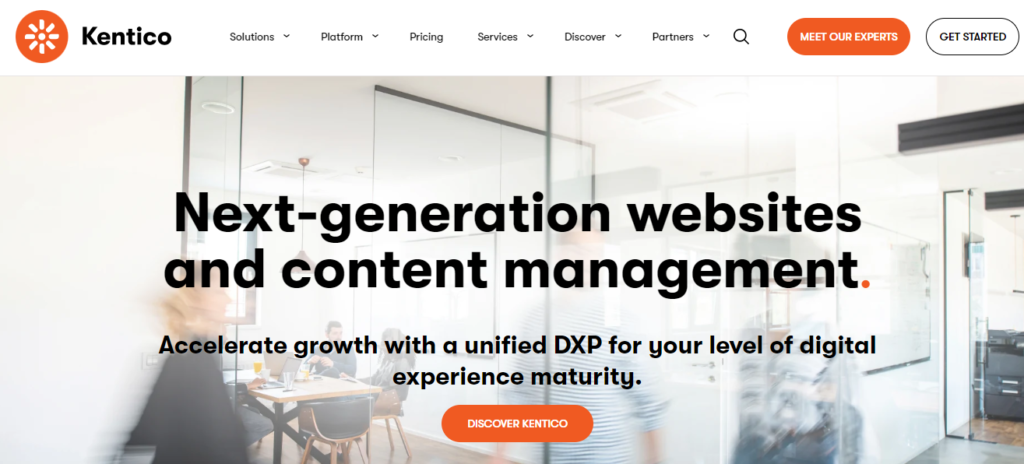
Kentico Xperience is a comprehensive digital experience platform that offers advanced customer data management capabilities. With features like unified profiles, segmentation, analytics, personalization, and integration with CRM systems, Kentico Xperience empowers businesses to leverage customer data for creating personalized experiences and driving effective marketing strategies.
Kentico Xperience is a robust digital experience platform that includes comprehensive customer data management capabilities to help businesses collect, organize, analyze, and leverage customer data for personalized experiences and effective marketing strategies. Here’s an overview of Kentico Xperience’s capabilities in managing customer data.
Key Features:
- Data Collection and Integration: Kentico Xperience enables businesses to collect customer data from various sources, including websites, e-commerce platforms, and third-party integrations. It supports data integration to consolidate customer information.
- Unified Customer Profiles: The platform creates unified customer profiles by aggregating data from different touchpoints, offering a complete view of each customer’s interactions, behaviors, preferences, and historical data.
- Data Segmentation: Kentico Xperience provides advanced segmentation tools to categorize customers based on demographics, behaviors, interests, engagement levels, and more.
- Data Enrichment: The platform enhances customer profiles with additional data, such as purchase history, past interactions, and browsing behavior, allowing for more personalized experiences.
- Real-time Data: Kentico Xperience offers real-time access to customer data, enabling businesses to respond promptly to customer actions and preferences.
- Advanced Analytics: The platform offers robust analytics and reporting features, allowing businesses to gain insights from customer data and make data-driven decisions.
- Personalization: Kentico Xperience supports personalized marketing campaigns by utilizing customer data to deliver targeted messages, content recommendations, and product offerings.
- Marketing Automation: The platform offers marketing automation capabilities, allowing businesses to automate workflows and communication based on customer behaviors and preferences.
- Omnichannel Engagement: Kentico Xperience empowers businesses to engage customers across multiple channels, such as websites, email, social media, and mobile apps.
- Conversion Optimization: The platform helps optimize conversion rates by analyzing customer behaviors and suggesting improvements to enhance the user journey.
- Data Privacy and Compliance: Kentico Xperience prioritizes data privacy and compliance, adhering to regulations like GDPR, and providing tools to manage customer consents and preferences.
- Integration with CRM: The platform seamlessly integrates with customer relationship management (CRM) systems, allowing for a holistic view of customer interactions and engagement.
- Support and Training: Kentico Xperience typically offers customer support, training resources, and documentation to assist users in effectively using the platform’s customer data management features.
Pricing:
You can easily get started at Kentico Xperience with a free sign-up. If you want more features besides free sign-up. So you will have to step up to the paid plan. If this plan does not match your personal reasons or business, I would recommend you to drop a mail to their customer support or you can contact them directly as per availability.
4. K2View.
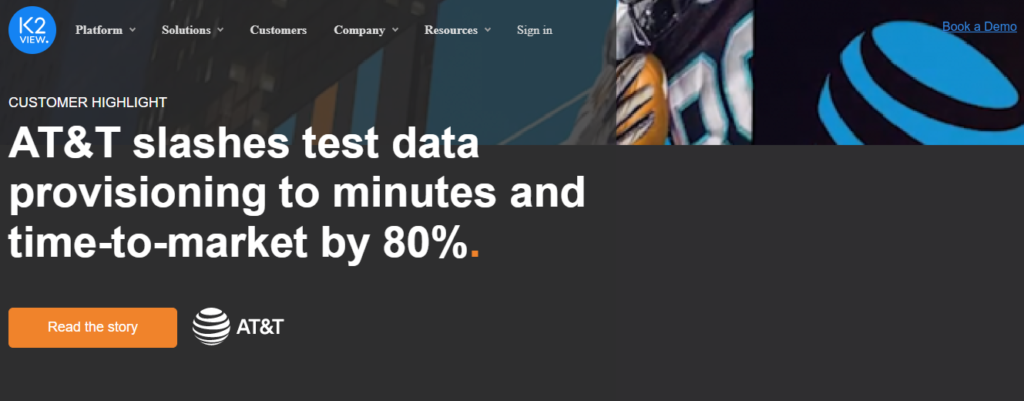
K2View is a comprehensive customer data management platform that empowers organizations to create accurate, unified customer profiles and leverage data for enhanced experiences and informed decision-making. With features like real-time data access, data enrichment, security measures, and integration capabilities, K2View supports organizations in optimizing their customer data management strategies.
K2View offers a robust customer data management platform designed to help organizations collect, unify, and leverage customer data for a variety of business needs. This platform provides a comprehensive set of tools and features to ensure data accuracy, streamline operations, and drive enhanced customer experiences. Here’s an overview of K2View’s capabilities in managing customer data
Key Features:
- Data Integration and Unification: K2View enables businesses to integrate customer data from various sources, systems, and databases, ensuring a unified and accurate view of customer information.
- Real-time Data: The platform offers real-time access to customer data, allowing organizations to work with the most up-to-date information for informed decision-making.
- Unified Customer Profiles: K2View creates unified customer profiles by consolidating data from disparate systems, giving a holistic view of each customer’s interactions, transactions, preferences, and history.
- Data Enrichment: The platform enriches customer profiles by incorporating additional data points, such as social media activity, purchase behavior, and interactions across channels.
- Data Governance and Quality: K2View employs data governance practices to ensure data accuracy, quality, and compliance with regulations, minimizing inconsistencies and errors.
- Data Security and Privacy: K2View prioritizes data security and privacy, implementing measures to protect customer data and adhere to regulatory requirements.
- Data Access and Control: The platform offers controlled access to customer data, allowing organizations to define user roles and permissions to ensure data integrity.
- Data Segmentation and Analysis: K2View provides segmentation tools and analytics capabilities to categorize customers based on behavior, demographics, preferences, and more.
- Personalization: By leveraging enriched customer profiles, organizations can deliver personalized experiences, targeted marketing, and tailored recommendations.
- 360-Degree View: K2View enables organizations to create a comprehensive 360-degree view of each customer, enabling better understanding and engagement.
- Integration with Business Processes: The platform seamlessly integrates with various business processes and applications, ensuring that customer data supports operational efficiency.
- Advanced Analytics: K2View offers advanced analytics features to extract insights from customer data, aiding in strategic decision-making and identifying trends.
- Support and Training: K2View typically offers customer support, training resources, and documentation to help organizations effectively utilize the platform’s features.
Pricing:
You can easily get started at K2View with a free sign-up. If you want more features besides free sign-up. So you will have to step up to the paid plan. If this plan does not match your personal reasons or business, I would recommend you to drop a mail to their customer support or you can contact them directly as per availability.
5. SAP Marketing Cloud.

SAP Marketing Cloud serves as a powerful solution for managing customer data and driving personalized marketing efforts. With features like unified profiles, segmentation, personalization, integration with CRM, and analytics, SAP Marketing Cloud empowers businesses to leverage customer data to create targeted campaigns and deliver exceptional customer experiences.
SAP Marketing Cloud is a comprehensive solution that encompasses various tools and features for managing customer data, enabling businesses to create personalized and targeted marketing strategies. The platform focuses on leveraging customer data to enhance engagement, drive marketing campaigns, and deliver exceptional customer experiences. Here’s an overview of SAP Marketing Cloud’s capabilities in managing customer data.
Key Features:
- Data Integration and Centralization: SAP Marketing Cloud allows businesses to integrate customer data from various sources, including CRM systems, social media, e-commerce platforms, and more. This centralization ensures a consistent and accurate view of customer information.
- Real-time Customer Insights: The platform provides real-time access to customer data, enabling marketers to work with up-to-date information and respond promptly to customer behaviors.
- 360-Degree Customer Profiles: SAP Marketing Cloud creates comprehensive 360-degree customer profiles by consolidating data from different touchpoints, offering insights into customer interactions, preferences, behaviors, and transaction history.
- Data Enrichment: The platform enhances customer profiles with enriched data, such as social media activity, past interactions, and purchase behavior, enabling personalized marketing efforts.
- Segmentation and Targeting: SAP Marketing Cloud offers advanced segmentation and targeting tools to categorize customers based on attributes, behaviors, demographics, and engagement levels.
- Personalization: Leveraging enriched customer profiles, the platform supports personalized marketing campaigns by delivering tailored content, offers, and recommendations.
- Campaign Management: SAP Marketing Cloud facilitates end-to-end campaign management, from planning and execution to tracking and analysis, leveraging customer data to optimize campaigns.
- Analytics and Reporting: The platform provides analytics features to extract insights from customer data, helping marketers understand trends, measure campaign performance, and make data-driven decisions.
- Omnichannel Engagement: SAP Marketing Cloud enables businesses to engage customers across multiple channels, including email, social media, mobile apps, and more.
- Integration with CRM: The platform seamlessly integrates with SAP’s CRM solutions, ensuring alignment between customer data and business processes.
- Data Privacy and Compliance: SAP Marketing Cloud emphasizes data privacy and compliance, adhering to regulations like GDPR and providing tools to manage customer consent and preferences.
- Support and Training: SAP Marketing Cloud typically offers customer support, training resources, and documentation to assist users in effectively utilizing the platform’s customer data management features.
Pricing:
You can easily get started at SAP Marketing Cloud with a free sign-up. If you want more features besides free sign-up. So you will have to step up to the paid plan. If this plan does not match your personal reasons or business, I would recommend you to drop a mail to their customer support or you can contact them directly as per availability.
6. ZoomInfo SalesOS.
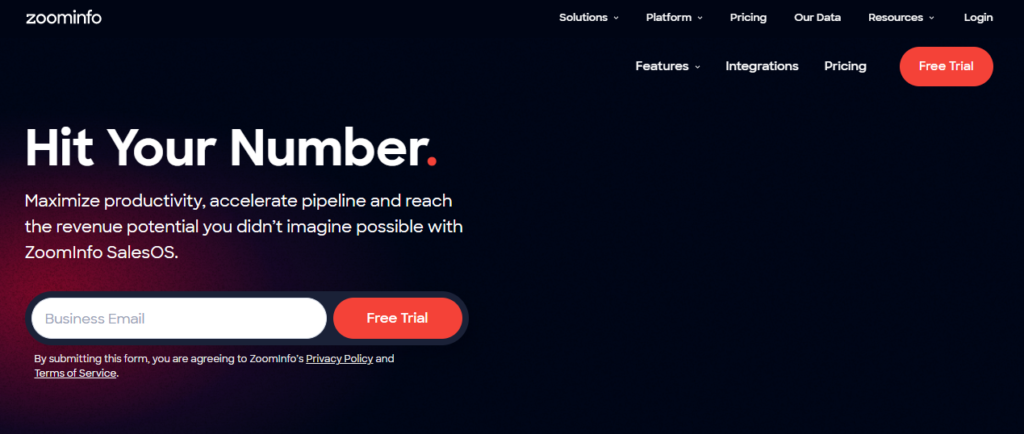
ZoomInfo SalesOS serves as a robust sales engagement platform that leverages customer data to help sales teams identify leads, engage with prospects, and drive revenue growth. With features like data enrichment, lead identification, personalized outreach, integration with CRM, and sales intelligence, SalesOS empowers sales professionals to effectively connect with their target audience and achieve their sales objectives.
ZoomInfo Sales Outreach (SalesOS) is a comprehensive sales engagement platform that provides businesses with valuable customer data and tools to enhance their sales and outreach strategies. With a focus on enabling effective communication and engagement, SalesOS offers features designed to help sales teams connect with prospects, identify leads, and drive revenue growth. Here’s an overview of ZoomInfo SalesOS’s capabilities in managing customer data.
Key Features:
- Data Enrichment and Intelligence: ZoomInfo SalesOS offers extensive data enrichment capabilities by providing accurate and up-to-date information about companies and contacts. It gathers data from various sources, ensuring that sales teams have access to comprehensive customer profiles.
- Prospecting and Lead Identification: The platform enables sales professionals to identify and target leads based on specific criteria such as industry, company size, job title, and more.
- Contact Information: ZoomInfo SalesOS provides accurate contact information, including email addresses, phone numbers, and social media profiles, helping sales teams connect with prospects effectively.
- Account-Based Marketing (ABM): The platform supports account-based marketing strategies by providing insights into target accounts and key decision-makers within those accounts.
- Sales Engagement: ZoomInfo SalesOS offers tools for personalized outreach, including email automation, follow-up reminders, and customizable templates.
- Data Segmentation: The platform allows sales teams to segment their leads and contacts based on various parameters, enabling more targeted and relevant communication.
- Integration with CRM: ZoomInfo SalesOS seamlessly integrates with popular customer relationship management (CRM) systems, ensuring that customer data is synchronized across platforms.
- Sales Intelligence: The platform provides insights and analytics that help sales teams understand prospect behaviors, track engagement, and make informed follow-up decisions.
- Lead Scoring: ZoomInfo SalesOS offers lead scoring capabilities to prioritize leads based on their potential value and likelihood of conversion.
- Team Collaboration: The platform facilitates collaboration among sales team members by providing visibility into communication history and engagement activities.
- Data Privacy and Compliance: ZoomInfo SalesOS adheres to data privacy regulations and provides options to manage customer consent and preferences.
- Support and Training: ZoomInfo typically offers customer support, training resources, and documentation to help users effectively utilize SalesOS features.
Pricing:
You can easily get started at ZoomInfo SalesOS with a free sign-up. If you want more features besides free sign-up. So you will have to step up to the paid plan. If this plan does not match your personal reasons or business, I would recommend you to drop a mail to their customer support or you can contact them directly as per availability.
7. SALESmanago.
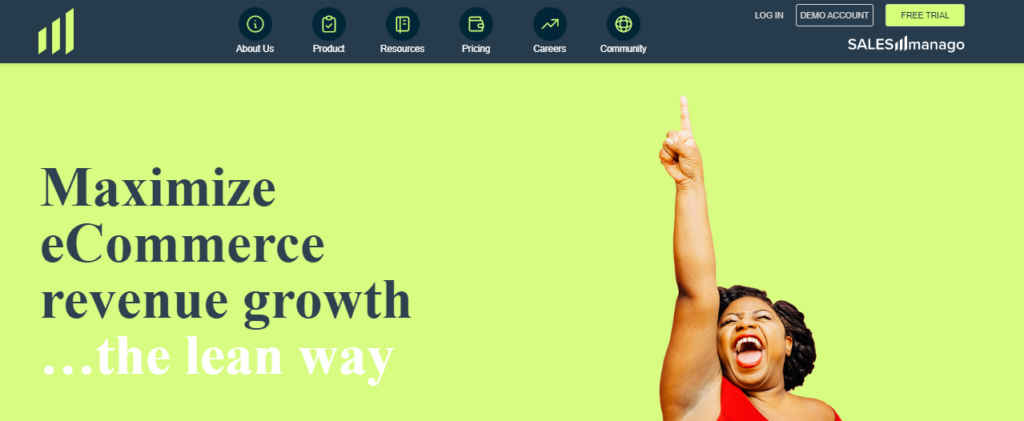
SALESmanago is a robust marketing automation platform that empowers businesses to leverage customer data for targeted marketing efforts and enhanced customer experiences. With features like comprehensive profiles, segmentation, personalization, integration with CRM, and marketing automation, SALESmanago enables businesses to create impactful marketing campaigns and build lasting relationships with their customers.
SALESmanago is a comprehensive marketing automation platform that offers businesses tools to manage customer data, engage with leads, and drive personalized marketing campaigns. The platform is designed to help businesses leverage customer data to deliver targeted messages, enhance customer experiences, and optimize marketing strategies. Here’s an overview of SALESmanago’s capabilities in managing customer data
Key Features:
- Data Collection and Enrichment: SALESmanago enables businesses to collect and enrich customer data from various sources, including websites, forms, and interactions. The platform automatically gathers information to create detailed customer profiles.
- 360-Degree Customer Profiles: SALESmanago creates comprehensive customer profiles by aggregating data from different touchpoints, offering insights into customer behaviors, preferences, purchase history, and interactions.
- Real-time Customer Insights: The platform provides real-time access to customer data, allowing marketers to work with up-to-date information for personalized communication.
- Segmentation and Targeting: SALESmanago offers advanced segmentation capabilities to categorize customers based on demographics, behaviors, engagement, and other attributes.
- Data Enrichment: The platform enhances customer profiles with additional data, such as social media activity, browsing behavior, and transaction history, enabling more personalized marketing efforts.
- Lead Scoring: SALESmanago supports lead scoring to prioritize leads based on their engagement and likelihood of conversion, helping sales teams focus their efforts effectively.
- Personalization: Leveraging enriched customer profiles, the platform enables businesses to deliver personalized content, recommendations, and offers through various channels.
- Marketing Automation: SALESmanago provides marketing automation features, allowing businesses to set up automated workflows triggered by customer actions and behaviors.
- Omnichannel Engagement: The platform empowers businesses to engage customers across multiple channels, including email, SMS, social media, and web notifications.
- Behavioral Tracking: SALESmanago tracks customer behavior and interactions, providing insights into engagement patterns and helping marketers tailor their strategies.
- Integration with CRM: The platform integrates with customer relationship management (CRM) systems to ensure alignment between customer data and sales processes.
- Analytics and Reporting: SALESmanago offers analytics tools to measure campaign performance, track customer journeys, and derive insights from customer data.
- Data Privacy and Compliance: SALESmanago emphasizes data privacy and compliance, adhering to regulations like GDPR and providing features to manage customer consent.
- Support and Training: SALESmanago typically offers customer support, training resources, and documentation to assist users in effectively utilizing the platform’s features.
Pricing:
You can easily get started at SALESmanago with a free sign-up. If you want more features besides free sign-up. So you will have to step up to the paid plan. If this plan does not match your personal reasons or business, I would recommend you to drop a mail to their customer support or you can contact them directly as per availability.
Executive Summary.
1. Future Trends in Customer Data Platforms
The future may bring AI-powered predictive analytics, enhanced real-time personalization, integration with emerging technologies, and deeper customer insights.
2. The Power of Unified Customer Data
CDPs empower businesses to create a centralized repository of customer data, providing a holistic view that enhances understanding and personalization efforts.
3. How Customer Data Platforms Work
CDPs collect data from sources such as websites, social media, emails, and transactions. They then consolidate and organize this data into unified customer profiles.
4. Key Features of Leading CDPs
Leading CDPs offer features such as data integration, identity resolution, segmentation, predictive analytics, real-time updates, and API integrations.
5. Benefits of Using Customer Data Platforms
Using CDPs yields benefits like improved customer segmentation, enhanced personalization, more effective marketing campaigns, and a better overall customer experience.
6. Creating Holistic Customer Profiles
CDPs enable businesses to create detailed customer profiles, including demographics, preferences, behaviors, purchase history, and engagement patterns.
7. Enabling Personalized Customer Experiences
Personalization is key to engaging customers. CDPs allow businesses to tailor interactions based on individual preferences and behaviors, fostering deeper connections.
8. Enhancing Marketing Precision
With rich insights, CDPs enable businesses to deliver targeted and relevant marketing messages that resonate with specific customer segments.
9. Integration with Marketing Tools
Many CDPs seamlessly integrate with marketing automation platforms, email marketing tools, and other software, creating a unified marketing ecosystem.
10. Ensuring Data Privacy and Compliance
CDPs must adhere to data privacy regulations like GDPR and CCPA to protect customer information and maintain trust.
11. Choosing the Right CDP for Your Business
Choosing the best CDP involves assessing features, data sources, scalability, ease of use, integration capabilities, and alignment with your business goals.
12. Overcoming Implementation Challenges
Implementing a CDP may involve challenges like data quality issues, integration complexities, and effective staff training.
13. Security Measures and Data Protection
Data security is paramount. CDPs should employ encryption, access controls, and other security measures to safeguard customer information.
14. Scaling Customer Data Efforts
As businesses grow, scalable CDPs should accommodate increased data volumes, new data sources, and evolving analytics needs.
Conclusion.
Customer Data Platforms empower businesses to gain deeper insights into customer behaviors, preferences, and interactions, paving the way for more meaningful and impactful customer experiences.
FAQs About Customer Data Platforms
What are Customer Data Platforms (CDPs)?
Customer Data Platforms are advanced tools that gather, organize, and analyze customer data from various sources, creating comprehensive customer profiles.
What benefits does using Customer Data Platforms offer?
Using CDPs leads to improved customer segmentation, enhanced personalization, more effective marketing campaigns, and a better overall customer experience.
Can Customer Data Platforms integrate with marketing tools?
Yes, many CDPs integrate with marketing automation platforms, email marketing tools, and other software, creating a unified marketing ecosystem.
What is the future of Customer Data Platforms?
The future may bring AI-powered predictive analytics, enhanced real-time personalization, integration with emerging technologies, and deeper customer insights.
How can Customer Data Platforms elevate customer understanding?
CDPs empower businesses to gain deeper insights into customer behaviors, preferences, and interactions, leading to more meaningful and impactful customer experiences.





